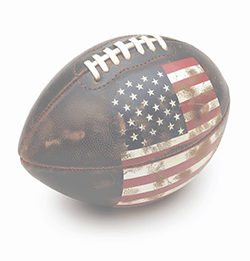Swimming And Diving

INTRO
Collegiate Swimming in USA is very international. Since the world is a recruiting space for collegiate coaches the competition is international is it ranges from very good to international elite. NCAA I have most elite swimmers that often achieve international recognition. NAIA schools have particular interest in international swimmers, and provide convenient avenue to transfer to a major D1 school after 1 or 2 years of competing for NAIA school.
- Total # of schools offering swimming – 691
- Mens programs – 559
- Women’s programs – 686
- Total Men swimmers – 11,349
- Total Women swimmers – 14,549
COLLEGE DIVING
Source: http://www.usadiver.com/diving_articles/Transition%20to%20college.htm
Diving, as a college sport, is unique. The sport is lumped together with swimming for both men and women and not all schools that have a swimming program also have a diving team. Diving is classed as an equivalency sport by the NCAA so coaches can divide their scholarship money between as many swimmers and divers as they wish. Some college swim teams focus exclusively on swimming recruiting and choose to not have a diving program at all. As a diver you will want to look for programs that treat diving seriously and hopefully award diving scholarships. As an incoming freshman you will find diving on a college varsity team much different than diving in high school. For one thing, you will find the coach more demanding of your time than what you are used to. Most often, you will be expected to work out twice a day and cover such activities as conditioning, line-ups, trampoline, port-o-pit, viewing video, lead-ups, along with a full list of dives. On top of this, you have to dive one three- and ten-meter platform, where in high school you had to dive only from the one-meter springboard. Traveling to meets over greater distances than in high school also takes a lot of time away from school. It is not unusual for a diver to be off campus two or three days a week for eight or nine weeks during the conference and championship part of the season. Missing that much school makes it very difficult for the athletes and the chance of flunking out are very good unless you develop good studying habits early in your college career.
RECRUTING REGULATIONS SWIMMING
Source: www.ncaa.org, www.naia.org, www.njcaa.org, www.ncsa.org
NCAA I
- Before June 15 after athlete’s sophomore year: Recruiters are permitted to send materials such as questionnaires, camp information and any non-athletic university publications. There is no other recruiting contact permitted.
- After June 15 following athlete’s sophomore year: Recruiting communication allowed includes text, email, phone or social media contact initiated either by the women’s college swimming recruiter or the athlete. Verbal offers and student-athlete commitment is allowed.
- Beginning August 1 of junior year:
- Official visits may be conducted
- Unofficial visits are permitted allowing contact between the college
- Off-campus contact between coach and athlete is permitted.
- Swimming recruits are allowed one official visit per school and are limited to five total official school visits.
- Senior year: A maximum of three off-campus contacts with a potential college swimming scholarship recruit allowed.
NCAA II
- General materials: coaches may send non-athletic collegiate publications, recruiting questionnaires, camp information, NCAA materials and at any time.
- Printed recruiting materials: Starting July 15 after an athlete’s sophomore year, college swim coaches and recruiters may begin sending other recruiting materials like camp information.
- Telephone calls: Starting June 15 after sophomore year, coach is permitted to contact a recruit by telephone.
- Off-campus contact: The coach may also make off-campus contact after June 15 of sophomore year.
- Official visits: During the senior year coach may only make three off-campus contacts with the recruit.
NCAA III
- High school freshman/sophomore athletes: Coaches are permitted:
- to send brochures for camps and questionnaires
- to send actual program recruiting information
- make unlimited phone calls to recruits.
- athletes are permitted to call coaches (at the athlete’s expense).
- unlimited ‘unofficial’ visits are allowed.
- After athlete’s high school sophomore year: coaches may make off-campus contact.
- After January 1 of athlete’s junior year: may organize official visits.
- Beginning first day of athlete’s senior year: may take one official visit per college.
NAIA, NJCAA
NAIA coaches do not have any restrictions regarding contact with a college swimming scholarship recruit and are permitted to contact the athlete an unlimited number of times. All methods of contact with recruiter are permissible, including e-mail, text, phone call or in-person. Recruiting is year-round.
HOW TO BE RECRUITED ?
You want to know more? Just register for free.
Register now
Become Visible to
US Coaches and Schools
Register and create a free profile. Both steps are required to sign up.
 Back
Back 